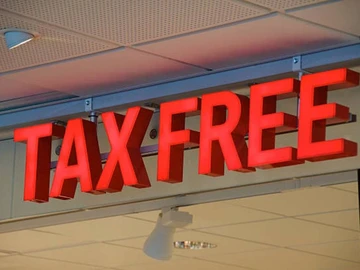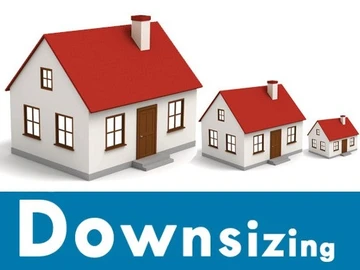Zimbabwe’s real estate market offers lucrative investment opportunities, ranging from residential properties in Harare and Bulawayo to agricultural land and commercial spaces. For foreigners eyeing these opportunities, a critical question arises: Can foreigners buy property in Zimbabwe?
The answer is yes but the process is governed by legal stipulations outlined in Zimbabwe’s Constitution and various statutes. Understanding these legal provisions is essential to ensure compliance and safeguard investments.
Legal Framework for Foreigners Buying Property in Zimbabwe
Zimbabwean laws permit foreigners to buy certain types of property but impose restrictions on others. Here’s an overview of the relevant constitutional and legal provisions:
1. The Constitution of Zimbabwe, 2013
The Constitution of Zimbabwe provides a foundation for property ownership rights:
Section 71: Property Rights
- This section guarantees every individual’s right to acquire, hold, and transfer property, subject to limitations imposed by law.
- However, for foreign nationals, additional restrictions and requirements apply, particularly for agricultural land.
Section 72: Rights to Agricultural Land
- The Constitution vests all agricultural land in the State and limits private ownership by foreigners.
- Foreigners may only lease agricultural land for a maximum of 99 years, subject to approval by the Minister of Lands, Agriculture, Fisheries, Water, and Rural Development.
2. Land Acquisition Act (Chapter 20:10)
This Act governs the acquisition and use of land, particularly agricultural land. Key provisions affecting foreign buyers include:
- Foreigners cannot own freehold agricultural land.
- Leasehold arrangements are permitted, but foreign entities must demonstrate the land will be used productively (e.g., for farming or conservation).
3. Deeds Registries Act (Chapter 20:05)
The Act stipulates the procedures for registering property ownership, including requirements for foreign buyers:
- Foreign buyers must provide proof of identity, nationality, and legal residency (if applicable).
- Property transactions must comply with monetary regulations, including payment in foreign currency.
4. Indigenization and Economic Empowerment Act
While largely relaxed in recent years, this Act still encourages majority Zimbabwean ownership in sectors such as agriculture and mining. Foreign investors may need to partner with Zimbabwean citizens for ventures in these industries.
Types of Property Foreigners Can Buy
1. Residential Properties
Foreign nationals are permitted to purchase freehold residential properties, including houses, apartments, and vacant land, in areas like:
- Harare: Borrowdale, Mount Pleasant, and Glen Lorne.
- Bulawayo: Hillside, Kumalo, and Selbourne Park.
2. Commercial and Industrial Properties
Foreign investors can purchase or lease commercial properties in urban centers such as:
- CBD Harare for office spaces.
- Bulawayo’s Belmont Industrial Area for warehouses and factories.
3. Leasehold Agricultural Land
Foreigners can acquire leasehold rights for agricultural land, typically for up to 99 years, provided the land will be used productively.
Key Requirements for Foreign Buyers
Foreigners looking to buy property in Zimbabwe must fulfill specific conditions:
a) Government Approval
- Section 72 of the Constitution requires approval from the Ministry of Lands for agricultural land purchases.
- For other properties, local government or municipal council clearance may be needed.
b) Proof of Residency or Investment
- While not mandatory for all property types, demonstrating residency or business operations in Zimbabwe can strengthen a foreigner’s application.
c) Currency Compliance
- All property transactions must be conducted in foreign currency (e.g., USD), in line with Zimbabwe’s exchange control regulations.
Benefits and Challenges
Benefits
- Access to Emerging Markets: Cities like Harare, Bulawayo, and Victoria Falls present high-growth opportunities.
- Attractive Prices: Property prices in Zimbabwe are relatively affordable compared to regional markets.
- Tourism Potential: Owning property in areas like Victoria Falls offers potential for lucrative returns in the hospitality sector.
Challenges
- Land Ownership Restrictions: Foreigners cannot own freehold agricultural land.
- Legal Processes: Complex bureaucratic procedures may require legal expertise.
- Currency Risks: Economic challenges in Zimbabwe, including inflation and exchange rate volatility, can impact investments.
Steps to Buying Property in Zimbabwe as a Foreigner
- Understand the Legal Requirements
Familiarize yourself with the Constitution and statutes such as the Land Acquisition Act. - Engage a Lawyer
Hire a legal expert to assist with due diligence, property verification, and regulatory compliance. - Secure Approvals
Submit applications to the relevant ministries or municipal councils for approval. - Complete Payment in USD
Ensure all payments comply with Zimbabwean foreign currency regulations. - Register the Property
Finalize the transaction by registering ownership with the Deeds Registry.
Final Thoughts
Foreigners can invest in Zimbabwe’s real estate market under specific legal frameworks. While there are restrictions on land ownership, residential and commercial properties in urban centers remain accessible.
By understanding the legal environment and working with experienced professionals, foreign investors can seize opportunities in Zimbabwe’s dynamic real estate sector. For trusted listings and expert advice, visit property.co.zw, Zimbabwe’s premier property marketplace.
 Continue with Facebook
Continue with Facebook
 Continue with Email
Continue with Email














